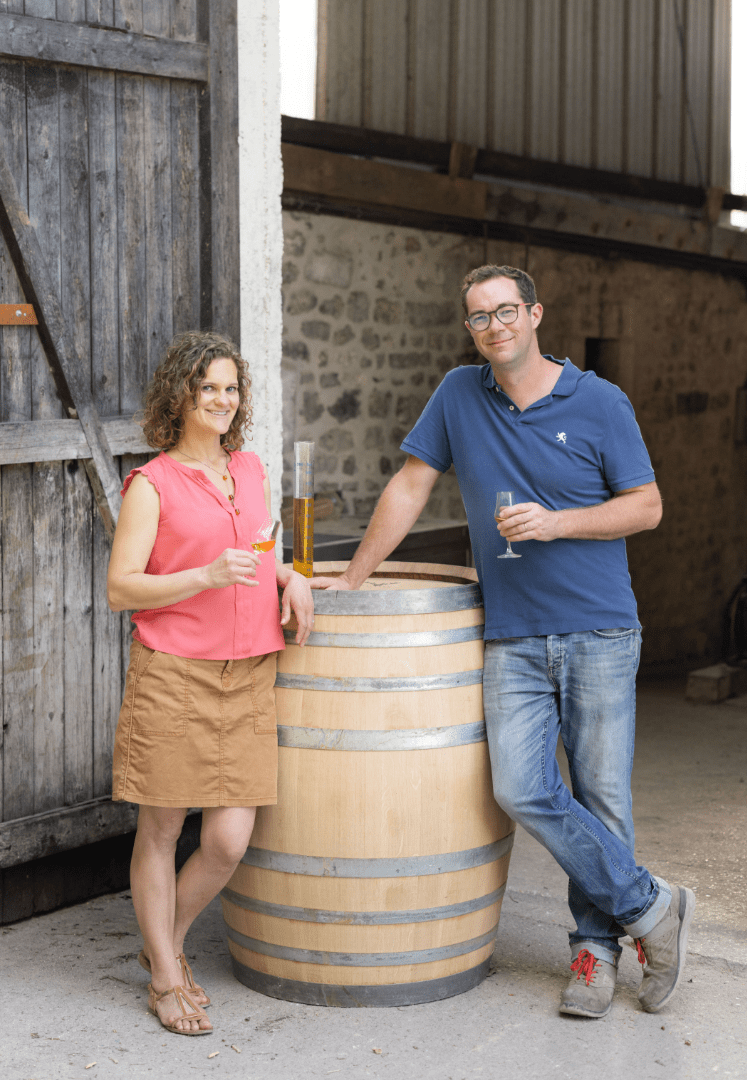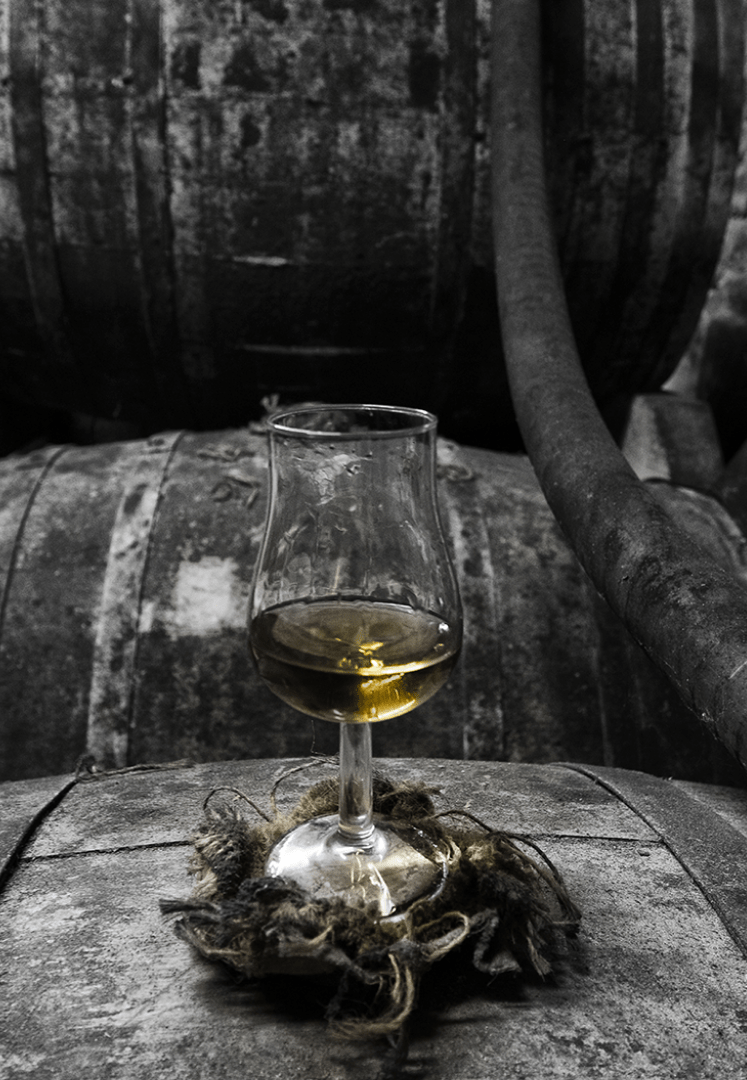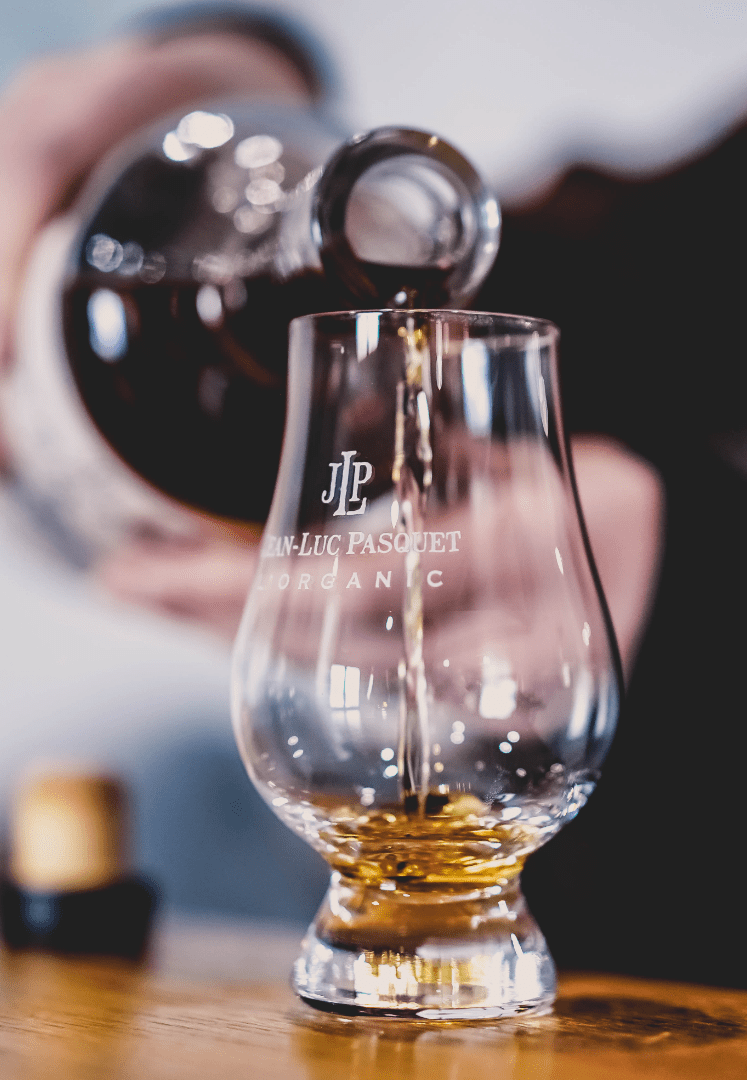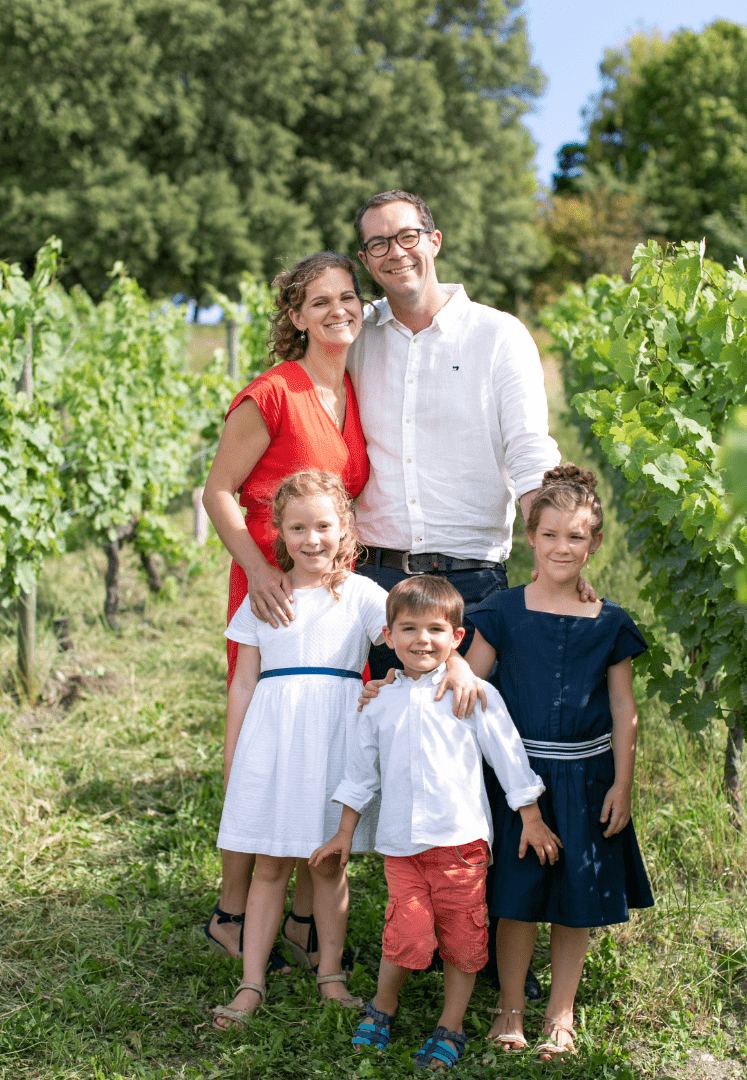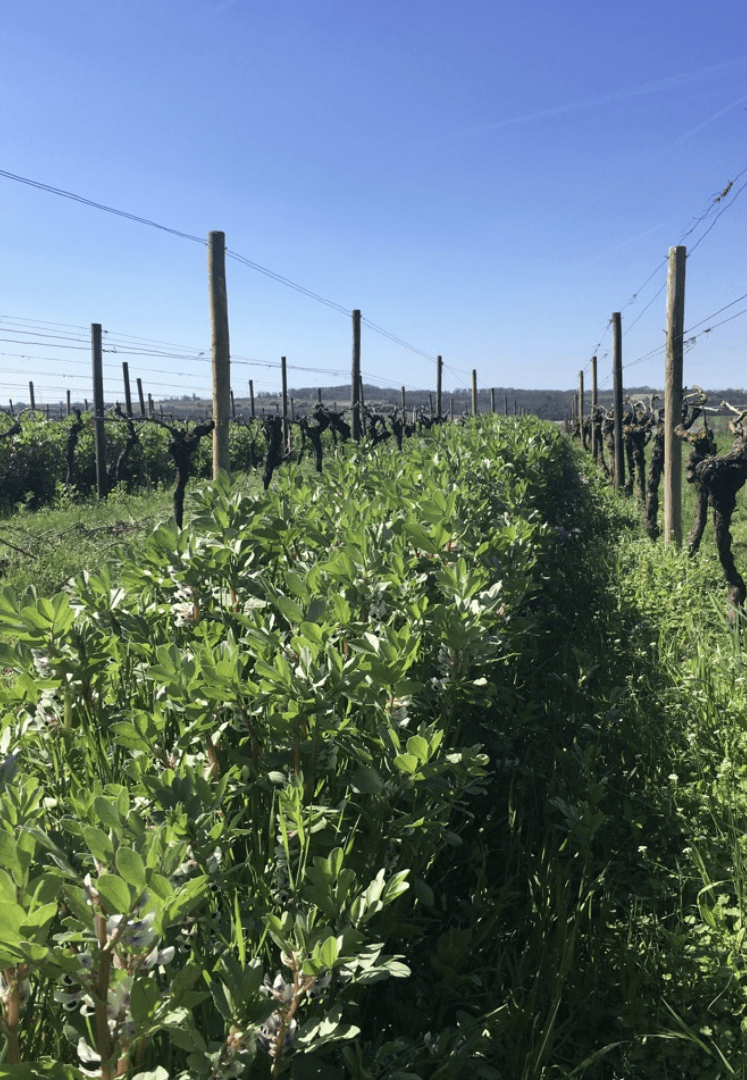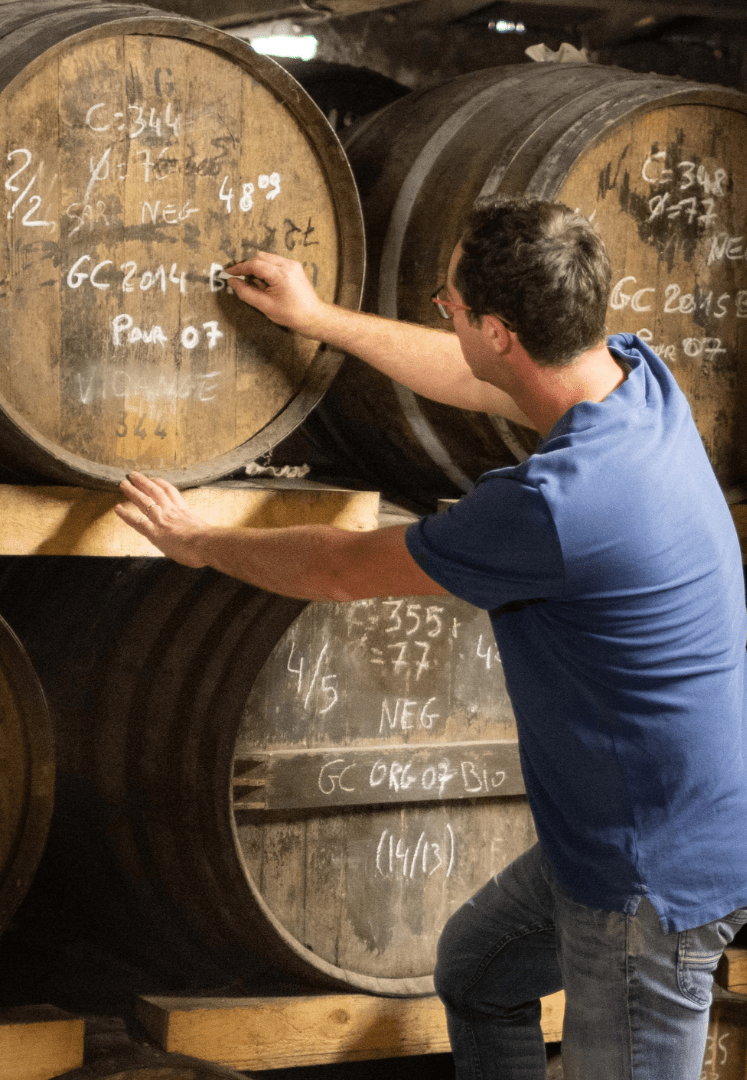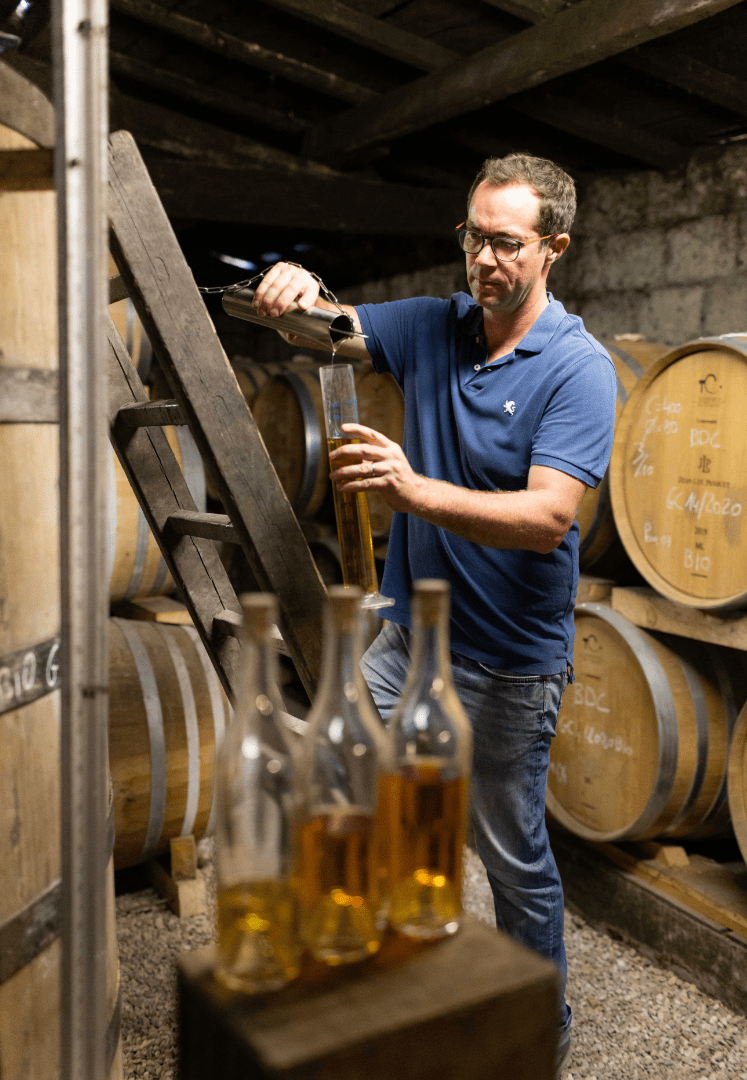Located in two townships bordering on the Grande and Petite Champagne growth areas, our current 15 hectares (nearly 40 acres) of vines have been cultivated using organic farming methods since 1995, with no synthetic chemical products, and giving priority to local organic matter (sowing broad beans and a blend of grains between the rows, composting residue from the press with local cow manure, using various plant teas, such as horsetail, reeds, stinging nettle, among others.
The historic Pasquet Cognac vineyards are located in Eraville, on Grande Champagne clay-limestone soils dating back to the Santonian period (Upper Cretaceous, 84 million years ago). Today, half of our vineyards are located in the neighboring town of Birac in the Petite Champagne cru.
